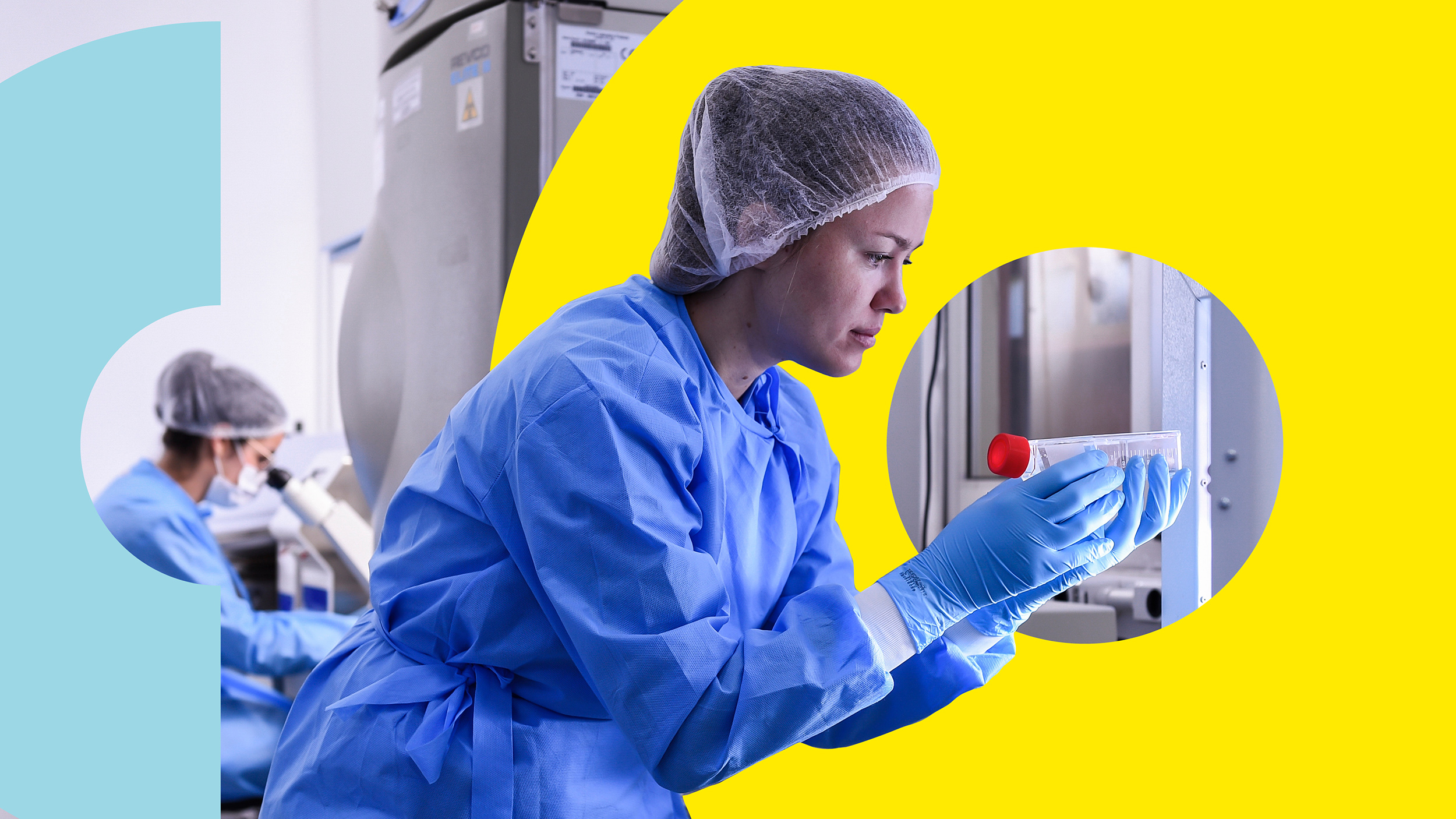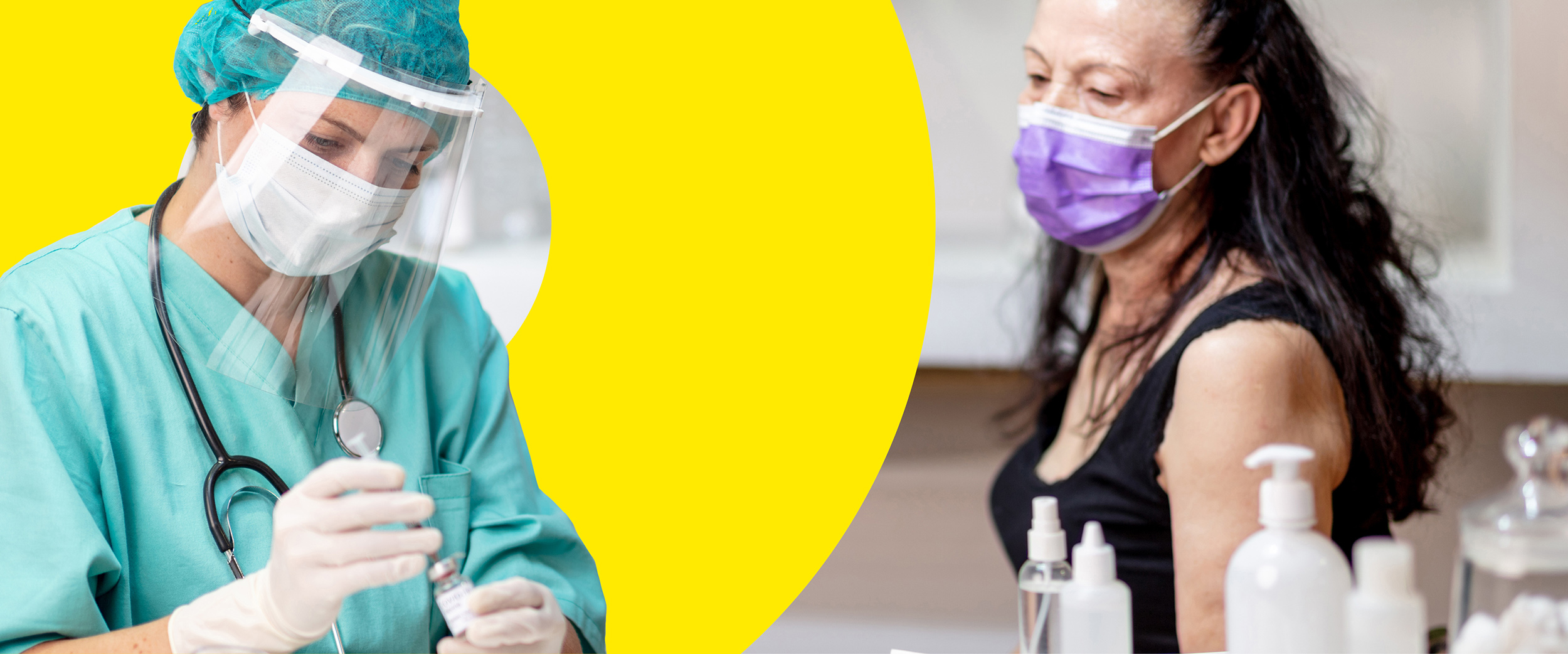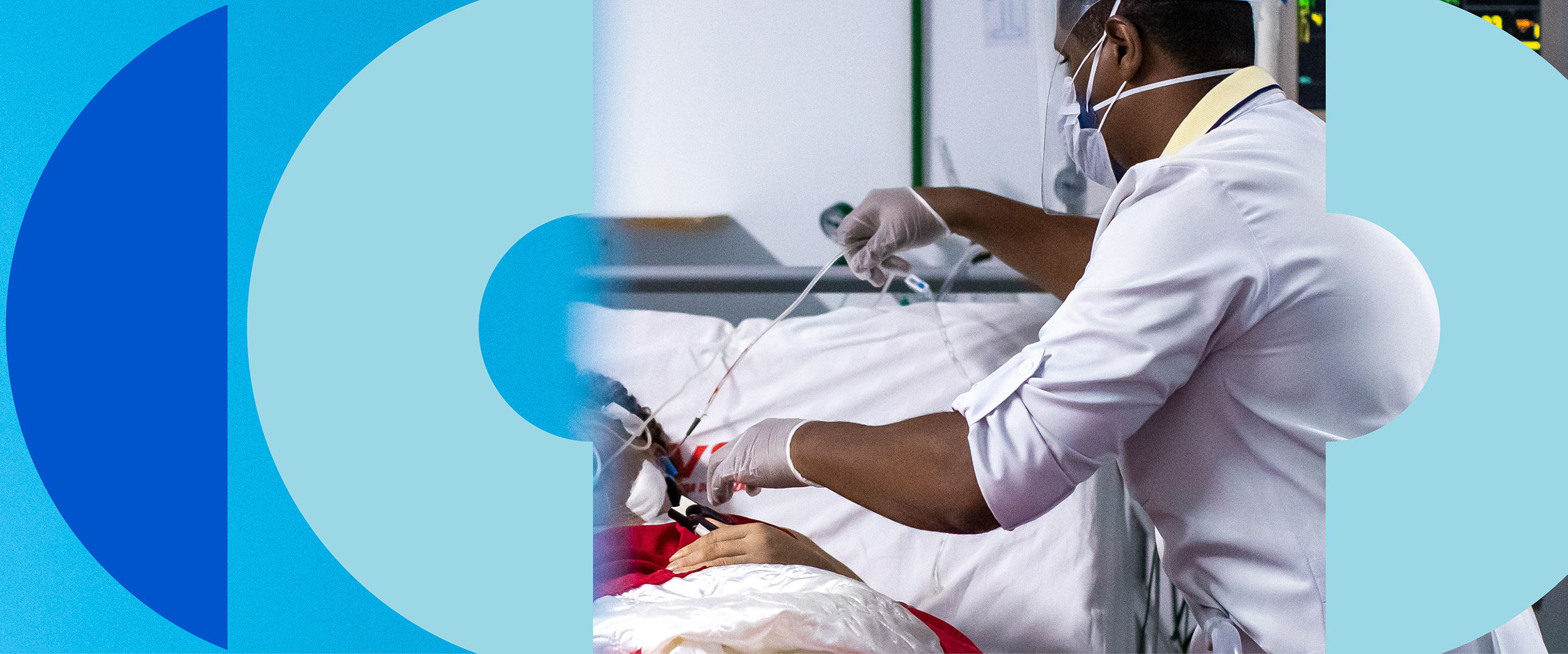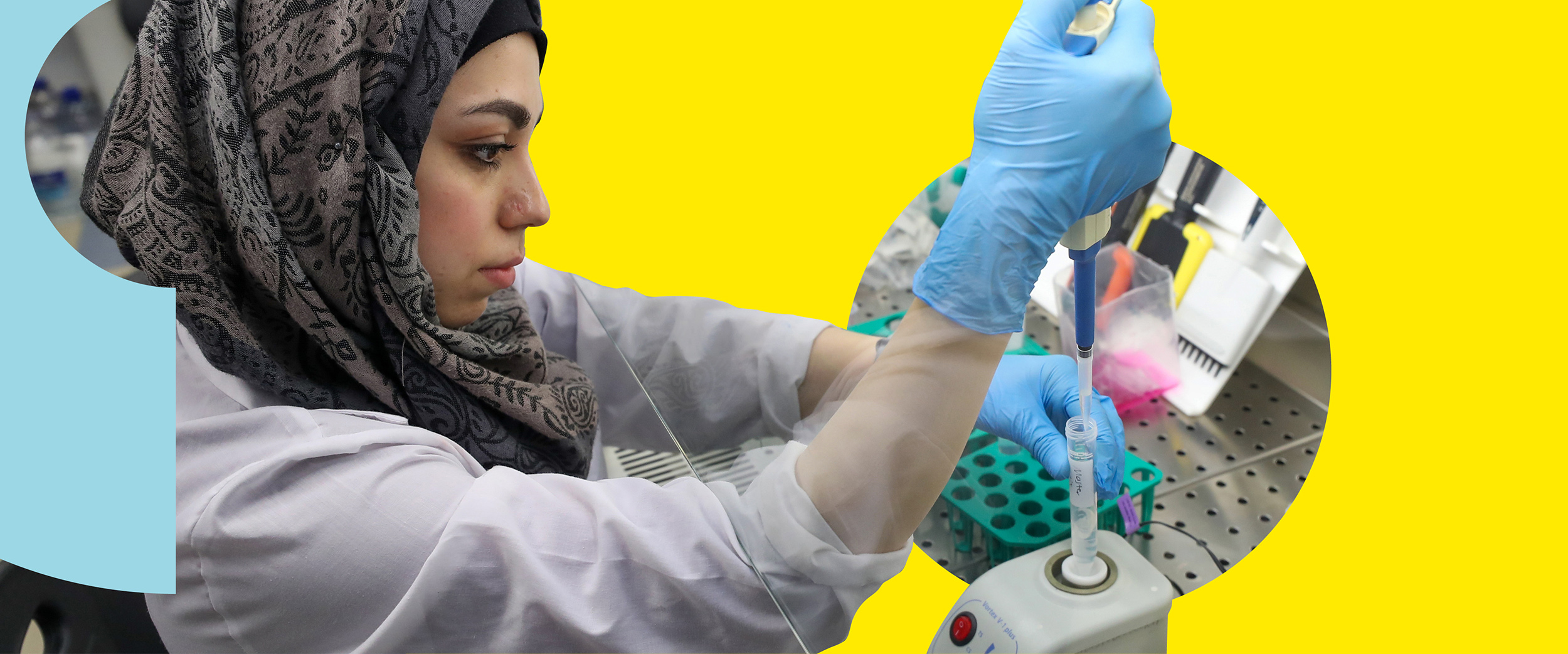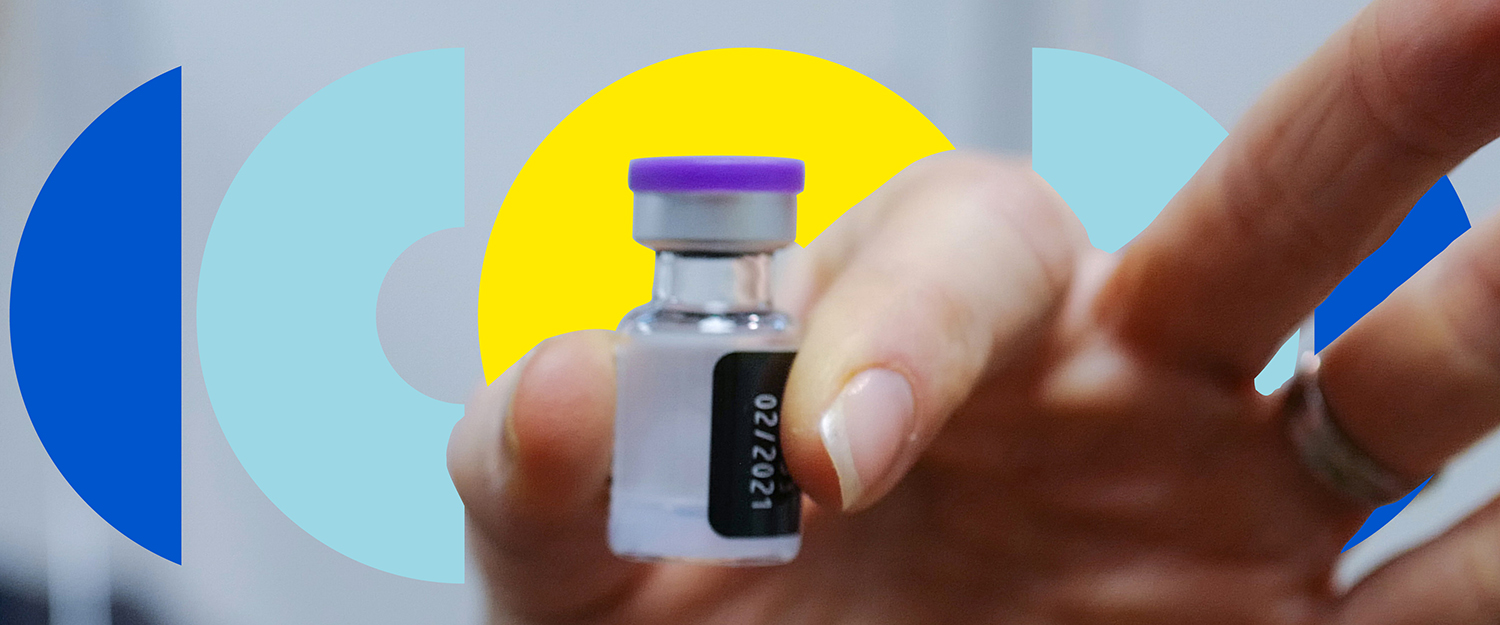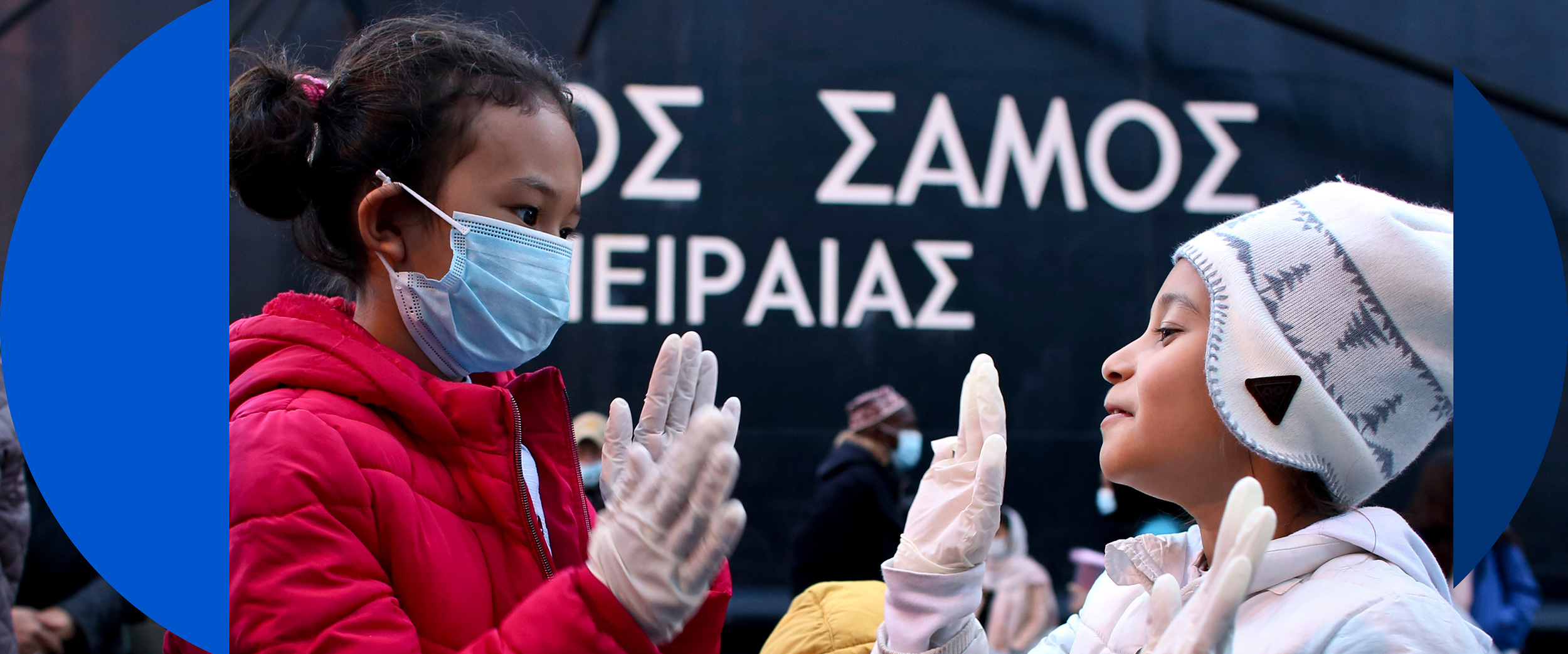Standfirst
The best of humanity has shone through the gloom of 2020. The dedication of scientists across the globe has been remarkable, not just for producing a string of lifesaving breakthroughs but for doing so at an unprecedented pace. Everyone who has supported the research response to Covid-19 can be proud. But the job isn’t finished yet, so we must redouble our commitments to put an end to the pandemic. Here is a selection of key moments in this great scientific success story.
Listing image
Credit
Pedro Vilela / Stringer via Getty Images
Filename
covid-2020-timeline-01.jpg
Content
Group title
The world starts working to understand a mystery disease
Admin title
The world starts working to understand a mystery disease
Group
Timeline description
The emergence and rapid spread of the novel coronavirus took the whole world by surprise. It soon became clear that this was a global health emergency that would require unprecedented action on many fronts. Key to the response was science: we needed to find out how this new disease affected people and how to stop it. Speed was essential, and research teams around the world wasted no time in getting to work.
Timeline
Label
One day after the first public statement about a pneumonia-like disease outbreak in Wuhan, China, the World Health Organization (WHO) activates an incident management team.
Label
Chinese scientists identify a novel coronavirus as the cause of the outbreak.
Label
The WHO announces it has received the genetic sequence of the novel coronavirus from China and will make this available for scientists worldwide to use in research.
Sub label
One of these involves Moderna. More programmes soon follow.
Label
The Coalition for Epidemic Preparedness Innovations (CEPI) announces that three vaccine research programmes have launched.
Sub label
Scientists and policy makers assess what they know about the virus and identify research priorities. A call for international funding to support this work follows.
Label
The WHO hosts a global research and innovation forum on the coronavirus.
Label
More than 20 vaccines are in development globally, and several treatments are in clinical trials, the WHO announces.
Image
Credit
Zoranm / Getty Images
Filename
covid-2020-timeline-02.jpg
Group title
Major research efforts mobilise to develop tests, treatments and vaccines
Admin title
Major research efforts mobilise to develop tests, treatments and vaccines
Group
Timeline description
As the spread of disease accelerated, so did the research effort. Major global collaborations were set up so that scientists could share their expertise, and plans were implemented to speed up clinical trials processes so that treatments, vaccines and diagnostics could be tested as quickly as possible, without compromising the safety of the participants. All this work needed funding, so governments, businesses and philanthropic organisations got together to start committing resources.
Timeline
Sub label
Funded by Wellcome, Bill & Melinda Gates Foundation and Mastercard.
Label
Covid-19 Therapeutics Accelerator launches to speed development of and access to treatments.
Label
First human trial of a Covid-19 vaccine starts, run by Moderna.
Label
The WHO’s Solidarity clinical trial begins to look for effective treatments.
Sub label
Thousands of Covid-19 patients in the UK are enrolled.
Label
UK-based RECOVERY clinical trial begins, looking at treatments.
Label
First trial participants receive Oxford/AstraZeneca vaccine candidate.
Sub label
This global collaboration will support development of Covid-19 tests, treatments and vaccines.
Label
The WHO launches the ACT-Accelerator.
Label
First patients receive BioNTech/Pfizer vaccine candidate.
Sub label
Global leaders also commit to making sure that any Covid-19 vaccines, treatments and tests will be equitably accessible across the world.
Label
European Union holds pledging event, raising some of the funding needed for research.
Image
Credit
Buda Mendes / Getty Images
Filename
covid-2020-timeline-03.jpg
Group title
Early evidence on vaccines and treatments builds up
Admin title
Early evidence on vaccines and treatments builds up
Group
Timeline description
The accelerated research programmes started producing evidence faster than would have been possible even a few years ago. Some of these findings were positive about what worked and others negative, but all this new knowledge was crucial to show researchers and healthcare systems where to concentrate their work. Meanwhile, international collaborations were developing policies to make sure the eventual results of research could be delivered to people worldwide, quickly and equitably.
Timeline
Label
Early data shows Moderna’s vaccine candidate creates an immune response in humans.
Label
First clinical trials of antibody treatments start, run by Eli Lilly.
Label
Results from the RECOVERY trial show that hydroxychloroquine isn’t effective for hospitalised patients.
Label
A second antibody treatment – Regeneron’s cocktail of two antibodies – starts clinical trials.
Sub label
Within three weeks, ACT-Accelerator secures access to 2.9m treatment courses for low- and middle-income countries.
Label
Results from the RECOVERY trial make dexamethasone the first drug known to improve survival rates in patients with Covid-19.
Image
Credit
Yegor Aleyev / TASS via Getty Images
Filename
covid-2020-timeline-04.jpg
Group title
Research funding delivers results, but much more is still needed
Admin title
Research funding delivers results, but much more is still needed
Group
Timeline description
The flow of potentially lifesaving discoveries continued. Even though the need was urgent, the clinical trials had to be conducted carefully and rigorously to make sure the participants were safe and the results were reliable. But researchers proved themselves able to make progress at record speed without making undue haste. More and more countries agreed on the need to make the results of these discoveries accessible to all, although the supply of funding to make this happen remained a crucial concern.
Timeline
Sub label
Global leaders renew their commitment to produce and distribute treatments, tests and vaccines equitably across the globe.
Label
Pledging summit hosted by the European Commission and Global Citizen raises more funding for research.
Label
The RECOVERY trial finds no clinical benefit from use of lopinavir-ritonavir in hospitalised Covid-19 patients.
Label
Early results from Moderna’s vaccine show a consistent antibody response.
Label
Early results from Oxford/AstraZeneca’s vaccine show it triggers an immune response.
Label
Moderna’s vaccine starts enrolling patients for phase III clinical trial.
Label
Oxford/AstraZeneca vaccine trial pauses to assess potential safety concern.
Label
Regeneron’s antibody treatment starts being tested as part of the RECOVERY trial.
Sub label
This is the ACT-Accelerator's COVAX initiative.
Label
156 countries agree to work together to make any new vaccines available to both rich and poorer countries.
Image
Credit
Hugh Hastings / Getty Images
Filename
covid-2020-timeline-05.jpg
Group title
We learn more about treatments – and vaccine results are spectacular
Admin title
We learn more about treatments – and vaccine results are spectacular
Group
Timeline description
More studies provided vital information about what does and doesn’t work to treat Covid-19, and a string of excellent results from vaccine trials brought hope that the pandemic could soon be at an end. Never before in the history of medical science has such extraordinary progress been made, against a disease that the world had never heard of a mere 11 months ago.
Timeline
Label
Early data shows that Regeneron’s antibody treatment may help non-hospitalised patients recover faster.
Label
World leaders pledge roughly $1bn for the ACT-Accelerator.
Label
Early data from Eli Lilly suggests its monoclonal antibody treatment can reduce levels of virus in patients and prevent hospitalisations.
Sub label
Remdesivir, hydroxychloroquine, lopinavir-ritonavir and interferon have "little or no effect" on mortality or disease progression among hospitalised patients.
Label
Interim results from WHO’s Solidarity trial are negative for several repurposed drugs.
Label
Pfizer/BioNTech vaccine shown to be more than 90% effective at preventing Covid-19.
Label
Moderna vaccine shown to be 94.5% effective at preventing Covid-19.
Sub label
Results suggest a different dosing regimen could give 90% effectiveness.
Label
Oxford/AstraZeneca vaccine shown to be at least 62% effective at preventing Covid-19.
Sub label
The UK authorises it for use, and vaccination starts less than a week later.
Label
Pfizer/BioNTech vaccine becomes the first Covid-19 vaccine to be approved by any national government.
Label
The US becomes the first country to authorise emergency use of the Moderna vaccine.
Label
The UK is the first country to authorise the Oxford-AstraZeneca Covid-19 vaccine.
Image
Credit
Milos Bicanski / Getty Images
Filename
covid-2020-timeline-06.jpg
Group title
The next chapter: deliver vaccines and develop treatments, for everyone
Admin title
The next chapter: deliver vaccines and develop treatments, for everyone
Group
Body
We mustn’t get overconfident after the good news on vaccines. It will still take a lot of work – and resources – to get billions of doses distributed around the world. While that happens, Covid-19 will continue to claim thousands of lives a day well into 2021.
This means it’s essential to keep up the research effort on finding better ways to treat Covid-19. And it’s essential to build the political will and infrastructure to make sure everyone in the world, rich and poor alike, can reap the benefits of the tremendous work science has achieved.
The work will need more funding. But we can be more confident than ever before that this funding will deliver results. 2020 will go down in history as the year of the pandemic. And 2021 can be the year we beat it.
Content
Body
Governments and private and philanthropic funders can support research into and equitable access to Covid-19 tests, treatments and vaccines.
Group title
Related content
Admin title
Related content
Group
Listing layout
Image card with CTA link (Horizontal card)
Title
Sign up to our newsletter
Description
Get the latest news about Wellcome monthly email.
Newsletter style
Light blue
Display in page navigation
On
Listing summary
The best of humanity has shone through the gloom of 2020. The dedication of scientists across the globe has been remarkable, not just for producing a string of lifesaving breakthroughs but for doing so at an unprecedented pace.
Display social share block
On
Banner image
Credit
Pedro Vilela / Stringer via Getty Images
Filename
covid-2020-timeline-01.jpg
Exclude from listings
Off
Article content type
News and announcements
6 minutes
Audio filename
https://wellcome-dot-org-audio.s3.eu-west-1.amazonaws.com/7ff2a005-4473-432e-ad1a-6ea233a8678a.b3650776-61a0-4559-8cef-4ef8eaea2ed9.mp3

